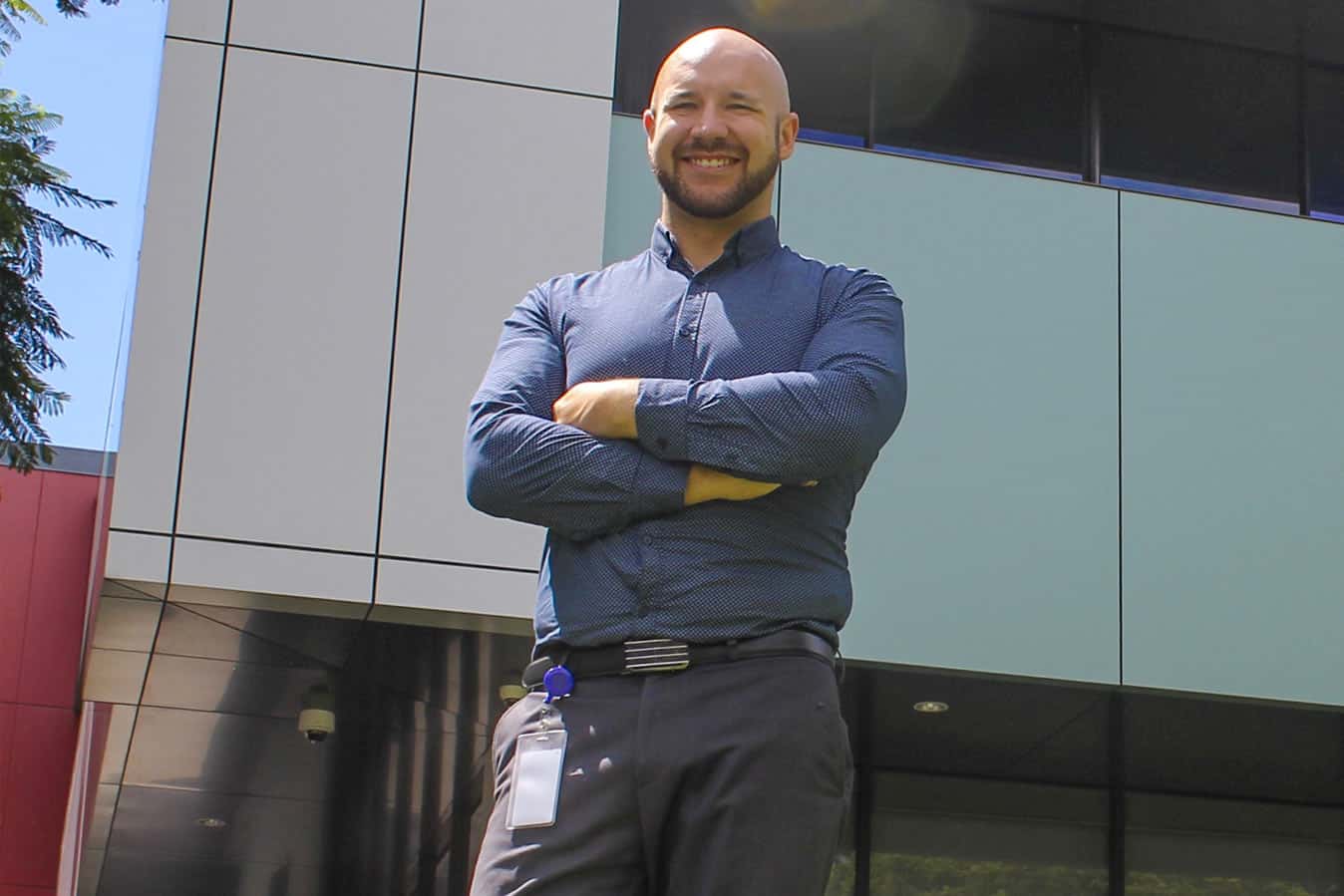For Sye Hodgman, a Trawlwoolway Palawa-Pakana nurse, his direct engagement with the Queensland Nurses and Midwives Union’s (QNMU ANMF QLD Branch) First Nations Branch means advocating for workplaces that allow Queensland’s Aboriginal and Torres Strait Islander nurses and midwives to thrive.
“My main role is to identify areas, based on conversations I’m having with our First Nations members and other things I just happen to identify around the area, that are examples of institutional racism, and develop strategies to address them,” he explains, noting that the success of these strategies hinges on a strong commitment to self-determination from both Sye and the stakeholders he engages with.
“The systemic and institutional barriers for Aboriginal and Torres Strait Islander nurses and midwives, whether that be in actually becoming qualified, being recruited, being retained, progressing their career as nurses and midwives, or in providing nursing and midwifery care in Aboriginal and Torres Strait Islander health.”
While Sye’s passion has previously been mentoring early career Aboriginal and Torres Strait Islander nurses and midwives, it would be erroneous to suggest his engagement with the community is purely through the prism of nursing.
Raised in Kelso, near Townsville, his family lived in defence housing before moving closer to Victoria after his parents separated, where he describes a “quite affluent” upbringing residing with his mother’s side of the family.
However, it was an existence where he felt removed from his peers, and experiences of race and class-based discrimination were common.
Describing himself as a “pale-skinned Aboriginal kid in a rich neighbourhood”, he observed now how even his close friendships were marked by dismissal or denial of his identity.
“When it would come up in those conversations, it would be often like, ‘Yeah, we’re not having the Aboriginal Sye here, we’ll just have the white Sye, thank you,’” he says.
Eventually, Sye found a community of Aboriginal and Torres Strait Islander peers while studying at the Australian Catholic University, graduating as an RN in 2010 after a protracted period of study that included working as an AIN, EN and a brief stint in a butcher’s apprenticeship.
Describing his early nursing career as a “baptism of fire,” he quickly found work despite missing out on a hospital graduate placement, commencing as a graduate agency RN in emergency departments and other high acuity areas.
Within 18 months, he was working as an Assistant Nurse Unit Manager (ANUM) in a joint Palliative Care/Respiratory Medicine ward at Cabrini Health’s Brighton Hospital, and after another stint as an ANUM in an Orthopedic/Urology surgical ward, would begin a role working directly with Aboriginal and Torres Strait Islander nursing and midwifery graduates at St Vincent’s.
From there, his passion for working for Aboriginal and Torres Strait Islander nurses and midwives would only deepen.
In 2014, he commenced at St Vincent’s Hospital, working as the HR and Indigenous Program Specialist at the Melbourne hospital, mentoring Aboriginal Torres Strait Islander students, graduates and other staff while driving a change in cultural inclusivity practices at the campus.
During this time, he also lectured and tutored at the Australian Catholic University’s Fitzroy campus, where he taught Aboriginal Health Workers for the Victorian Aboriginal Community Controlled Health Organisation (VACCHO) and held numerous consultancy, board, and advisory positions focused on advancing rhe Aboriginal and Torres Strait Islander health workforce.
Moving to Queensland in 2019, Sye commenced at the QNMU in September 2020, and his work draws on the full spectrum of his personal and professional experiences, explicitly addressing how systemic and social barriers prevent the QNMU’s First Nations members from performing their roles to the best of their ability and progressing their careers.
Currently, he’s looking at the time and financial obstacles Aboriginal and Torres Strait Islander nurses and midwives-in-training face in becoming an RN after qualifying as an AHW or EN. He also reviews the accessibility of housing for Indigenous health workers in remote areas; he describes an example of the latter situation in Thursday Island as “economic colonisation”.
While Sye acknowledges his role does address the specific experiences of Queensland workers, he nevertheless sees his role as one that, while meeting the specific moment, can also create solutions that can be emulated to meet similar challenges across the country.
“Each community does need its own tailored solution, but there are definite blanket legislative and policy changes that can support all communities,” Sye explains, adding that he uses his role and platform to obtain and push for the solutions that members demand from government, regulators and employers.
“I don’t come to the table to complain… My line is always going to be, ‘Well, if you don’t want to implement this strategy, tell me what you’re actually doing to solve this problem? Give me an alternative solution that our members are happy with because I’m giving you a solution to the problem now.’”
Nevertheless, while Sye’s role puts him at the table with various stakeholders, especially concerning housing policy, he remains clear-eyed and driven to cut through a process that can sometimes be punctuated by polite acknowledgement of the issues at hand rather than meaningful decision-making.
“Everyone always seems to be concerned when you are talking to them, but then doesn’t actually give you any action,” Sye explains.
“The less action I see about it, the more noise I’m going to make about it, and I’ve made that really, really clear.”
For more information about the First Nations’ Branch, QNMU members can find out more here (Member’s Login Only).








